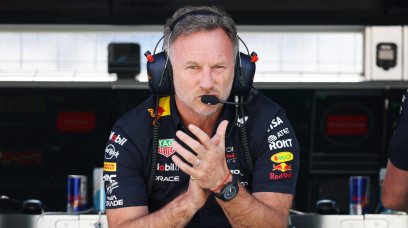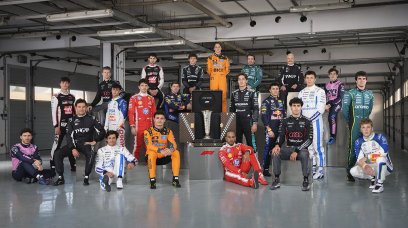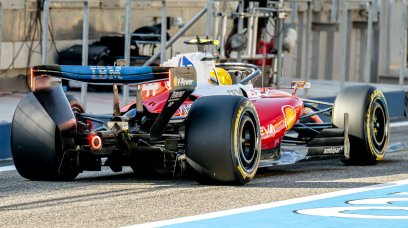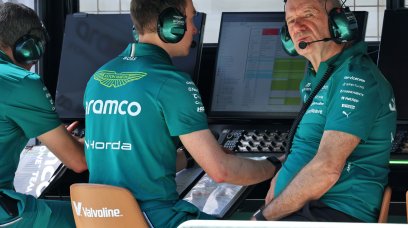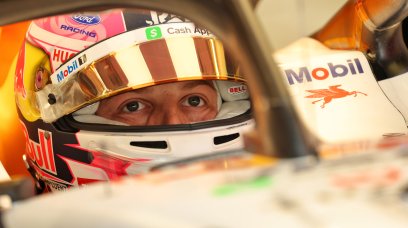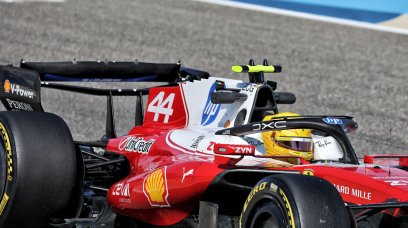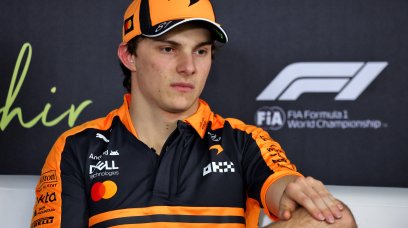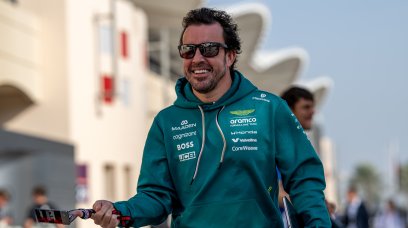Continuing our series that covers amendments to Formula 1's rules as the sport heads into its 'new era', this week Dieter Rencken examines the hows and whys of changes to the Sporting Regulations, in particular Grand Prix weekend schedules, which differ markedly from what went before. Readers planning to attend Grands Prix should note the changes - as these could affect their travel plans - as should ardent TV viewers.
F1's calendar grows further with 23 races planned in 2022
Since Liberty Media in 2017 acquired control of the Formula One Group and listed it on NASDAQ, the primary focus of F1's commercial masters has been on growing the sport's bottom line in order to boost the FWONK share price. Another imperative is to reduce costs under the budget cap, and the tighter the timing, the greater the travel, clearing and transportation costs. The easiest way of achieving Liberty's objective is through calendar expansion: more races equal more in hosting fees, increased TV offerings and greater visibility for sponsors and trackside advertisers – hence 2022's record 23-race calendar. There are, though, practical limitations to such growth, particularly if add-ons are staged outside Europe given the flipside is more travel, and less 'me' time for hardworking F1 staff. Indeed, during triple-headers, of which there are two in 2022 - three if the Bahrain test followed by two back-to-back Middle East races is factored into the equation - mean long-suffering personnel don't get to see loved ones for a month (or more) unless drastic measures are taken to redress the (im)balance. Equally, F1 is losing valuable expertise and knowledge through folk no longer being prepared to travel non-stop. In addition, where flyaway triple headers - such as Russia, Singapore and Japan on the bounce - are listed it is virtually impossible to guarantee freight will make it to the next destination and be unpacked timeously. Indeed, last year delays caused by inclement weather between the Mexican and Brazilian rounds meant some hapless teams were wrongfooted during the latter event. F1 knows it got lucky, but at some stage fortune will run dry. In effect the choices facing FOG were no calendar expansion, or a more compact format to 'buy' the sport time between fixtures. It is obvious which option Liberty preferred, with the most logical format being a reduction in 'track days'…
What will the new F1 weekend schedule look like?
F1 historically operated to four-day (Thursday-Sunday) schedules - and five days, namely Wednesday to Sunday, for Monaco - with the opening day in each case featuring media and administrative sessions and track activities commencing Fridays. From this year all events, including, crucially, the Principality's race, feature three-day schedules, with non-essential personnel not gaining paddock access on Thursdays. Thus, no pitlane walkabouts for fans, with Monaco visitors being particularly hard hit... The result is that Grand Prix weekends will start Friday morning, with ancillary stuff such as documentation, meetings and media sessions taking teams through to around midday depending upon specific timings for an event. Thereafter two free practice sessions - each of 90-minute duration and separated by at least two hours - will take place. At most venues the first free practice session is expected to start at 13:00 local time, with FP2 run from 17:00 to 18:30. These sessions will be followed by further media activities and meetings/briefings, potentially keeping personnel trackside for 12 (or more) hours at a stretch. The good news - particularly for fans at events - is that F1 is reverting to two 90-minute sessions in place of 2021's two one-hour practices. Then, according to the revised regulations, "a further free practice session (P3), lasting one hour and starting no less than seventeen-and-a-half hours after the end of P2, will take place on the day before the race", so from 12:00 on Saturday. The regulations continue: "The qualifying practice session will take place on the day before the race and start no less than two hours after the end of P3", so 15:00 (or later). Qualifying follows the familiar structure and timings, so Q1 lasting 18 minutes with the bottom five cars eliminated (20 car entry), followed by a 15-minute Q2 session commencing seven minutes after the end of Q1. The final 10 cars will then go through to a Q3 of 12-minute duration. The Grand Prix proper shall not start later than four hours before official sunset, so usually 15:00. However, the regulations make provision for driver interaction with fans: "Within a one-hour period finishing no later than one hour and 30 minutes before P3, all drivers must be available for fan activities (including, but not limited to, autograph sessions and fan forums) for a maximum period of 15 minutes each within the hour."
Three days packed full of F1 action, on and off the track
Accordingly, a typical weekend schedule during the 2022 F1 season will be: Friday 09:00 – Media/documentation/scrutineering 13:00-14:30 – FP1 15:00-16:00 – Team representative media session 17:00-18:30 – FP2 19:00 onwards – Media/briefings Saturday 09:00-10:30 – Driver/fan interaction, autographs (each team minimum 15 minutes) 12:00-13:00 – FP3 15:00-16:00 – Qualifying 17:00 onwards – Media/briefings Sunday 13:30 – Driver parade 15:00 – Race start 18:00 – Media Note: exact timings will vary within permitted parameters, particularly for dusk/night races. The bottom line is that F1 believes the revised formats will this year save at least 24 days – two days for Monaco and one per each of the 22 'traditional' Grands Prix, in turn potentially saving teams hotel costs while enabling most personnel to enjoy additional time off between races. The downside for promoters is that tourism potential is reduced a day (at least) per race weekend. These 'off' days may not translate to domestic time - particularly where flyaways and back-to-backs are concerned - but should make for less interim hectic while permitting a modicum of relaxation. The flipside is that Liberty may well decide to grow calendars even further, arguing that three-day formats are the silver bullet to 25 or more events…
Most read
